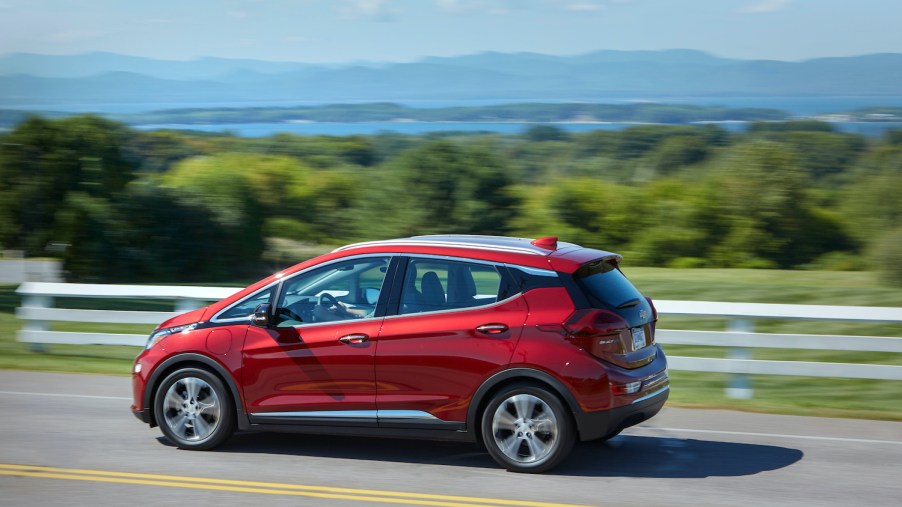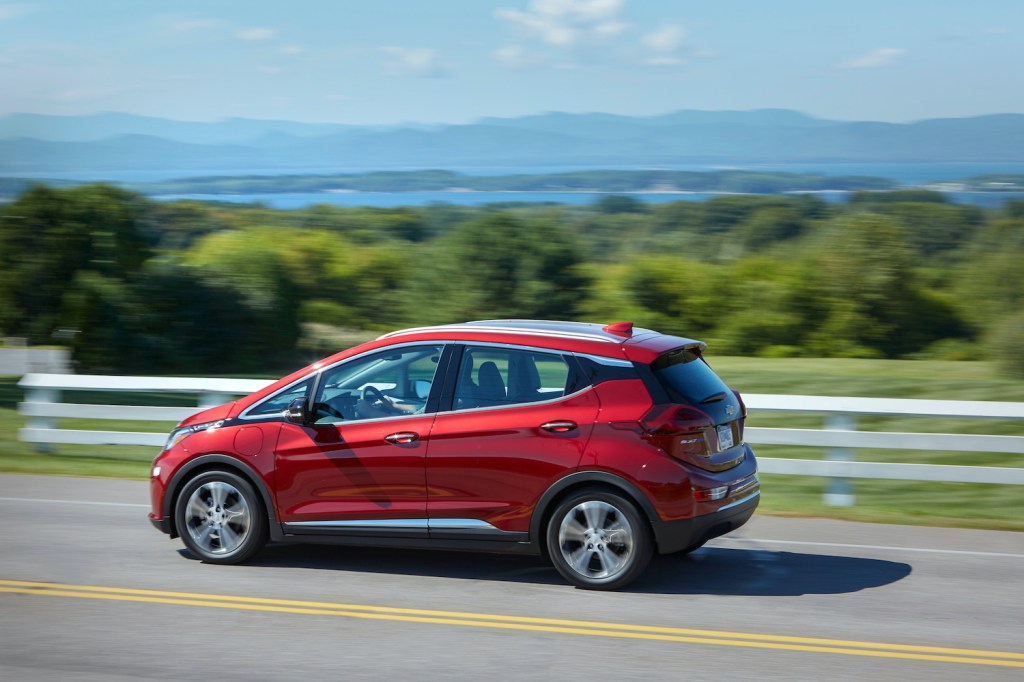
Is It Better for You To Buy or Lease an EV?
There’s no denying that buying an electric vehicle (EV) is expensive. According to Quartz, the average cost of a new EV is approximately $55,600. That price is nothing to scoff at. You may be wondering then, with such a high price tag, is it better for you to buy or lease an EV?

The difference between buying and leasing an EV
There are a few key differences between buying an EV outright and choosing to lease one. When you lease an EV, it’s similar to renting an EV for an extended period. It’s important to know that you won’t pay the full purchase price when leasing an EV too. Instead, U.S. News & World Report says that you pay to cover the depreciation expected to occur during the lease term, plus interest and fees when leasing an EV.
Financing an EV, however, is a tad bit different. When you finance an EV, you’re buying the vehicle. You’ll negotiate the price of the EV and will more than likely take out a car loan to pay that negotiated price, minus the value of your trade-in or your down payment. Remember, though, when you finance an EV, your lender will hold on to the car’s title until you’ve paid off the loan. After that, you’ll then get the title and will have complete ownership of the vehicle.
Why leasing an EV makes for a better choice
While buying an EV certainly sounds exciting, most advice says to lease rather than finance an EV. According to Consumer Reports, because leases are for a specific period, leasing an EV can give you access to the latest features and upgrades. At the end of your lease term, simply turn the vehicle in and treat yourself to a newer model.
That’s not the only reason Consumer Reports recommends leasing an EV either. Depreciation hits EVs pretty hard. Mel Yu, an auto analyst with Consumer Reports, explained that EVs depreciate faster than typical cars because the available tax credits lower the vehicle’s initial price. Leases, however, factor in that depreciation. “A vehicle usually loses around 50 percent of its value in three years,” says Yu. “Buyers can owe more on their loan than the vehicle is worth.”
U.S. News & World Report says that you can expect a lower monthly payment when leasing an EV too. Because you’re paying for the EV’s expected depreciation, U.S. News & World Report says that you can expect your monthly payments to be lower than if you chose to finance instead.
There’s only one reason to finance an EV
There’s really only one reason to finance an EV rather than lease one. Several EVs qualify for a $7,500 federal tax credit, which is a pretty big chunk of change. However, if you’re leasing an EV, you can expect that tax credit to go to the manufacturer you’re leasing from, not you. Edmunds reports that many dealerships will factor that credit into the lease’s cost, which would ultimately lower your monthly payment. However, dealerships aren’t required to do this. So, if you’re planning to take advantage of that federal tax credit, leasing an EV may not make the most sense for you.
Making the best decision for your wallet
There’s no reason to break the bank when buying your next car. Sit down, come up with a budget, and figure out the best course of action for yourself and your wallet. If leasing makes the most sense for you, then go with that! But if you’re interested in buying an EV and want to take advantage of those federal tax credits? Then that’s not a bad idea either.



